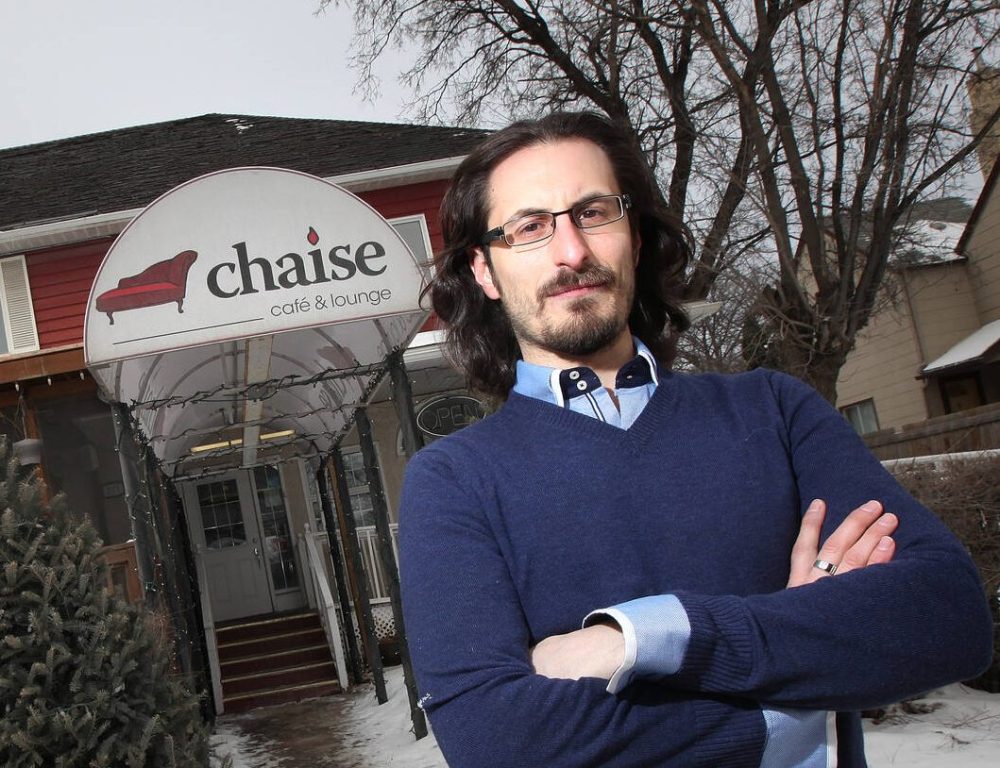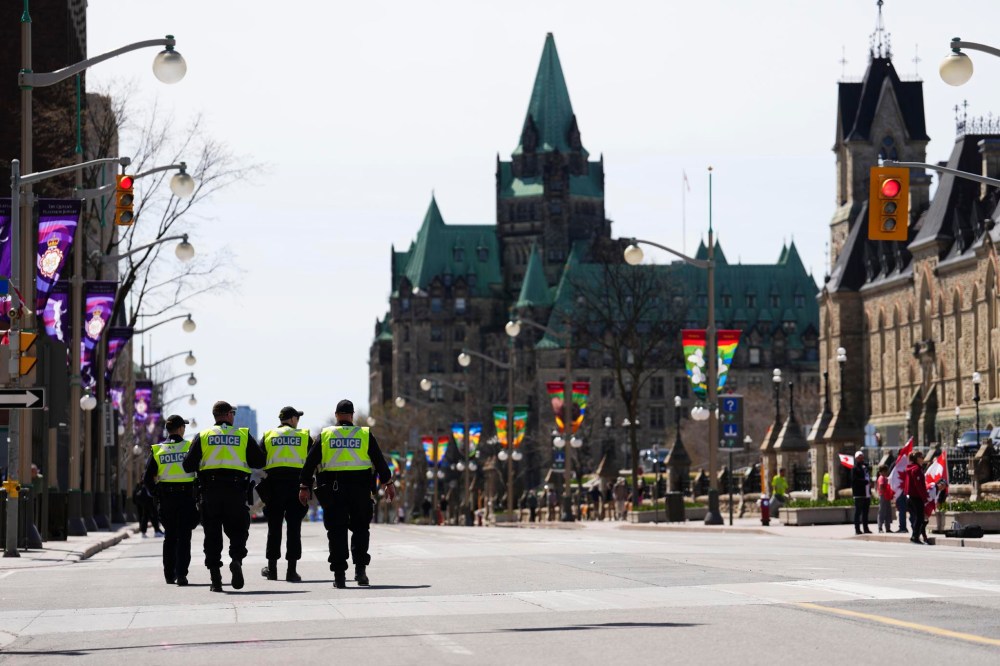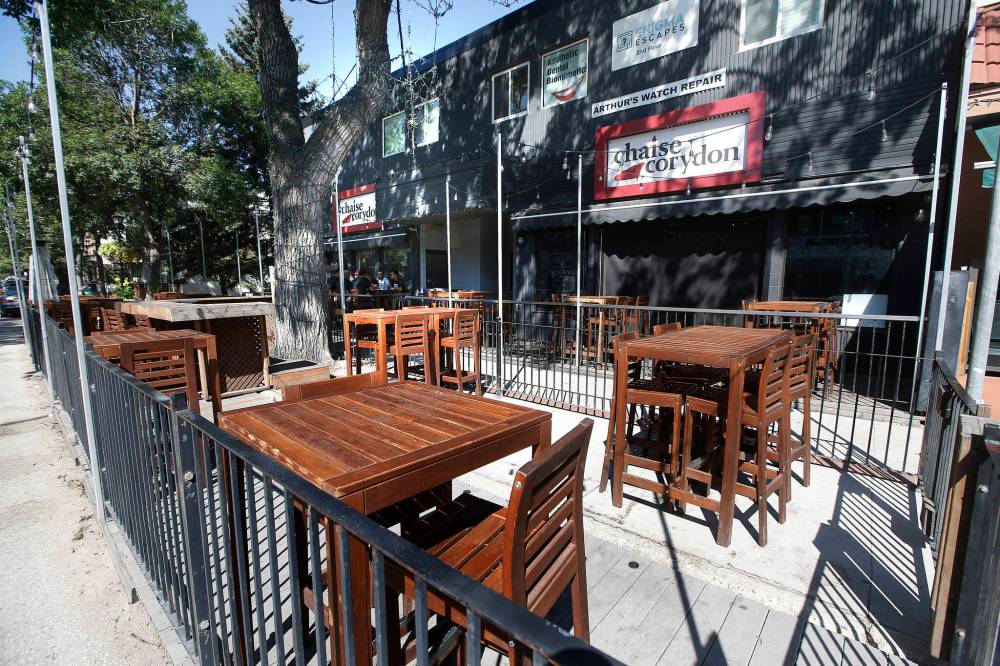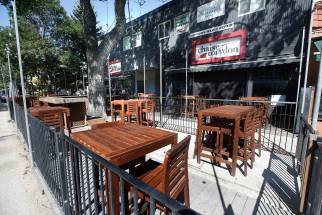Fed-up restaurateur selling cafés, leaving country ‘You couldn’t pay me to stay in Canada… I think Canada’s looking at a very dark future’
Read this article for free:
or
Already have an account? Log in here »
To continue reading, please subscribe:
Monthly Digital Subscription
$0 for the first 4 weeks*
- Enjoy unlimited reading on winnipegfreepress.com
- Read the E-Edition, our digital replica newspaper
- Access News Break, our award-winning app
- Play interactive puzzles
*No charge for 4 weeks then price increases to the regular rate of $19.00 plus GST every four weeks. Offer available to new and qualified returning subscribers only. Cancel any time.
Monthly Digital Subscription
$4.75/week*
- Enjoy unlimited reading on winnipegfreepress.com
- Read the E-Edition, our digital replica newspaper
- Access News Break, our award-winning app
- Play interactive puzzles
*Billed as $19 plus GST every four weeks. Cancel any time.
To continue reading, please subscribe:
Add Free Press access to your Brandon Sun subscription for only an additional
$1 for the first 4 weeks*
*Your next subscription payment will increase by $1.00 and you will be charged $16.99 plus GST for four weeks. After four weeks, your payment will increase to $23.99 plus GST every four weeks.
Read unlimited articles for free today:
or
Already have an account? Log in here »
Hey there, time traveller!
This article was published 16/09/2022 (1177 days ago), so information in it may no longer be current.
A local restaurateur has put his cafés up for sale and plans to leave Canada — a place he believes is becoming a Communist state.
Sister eateries Chaise Corydon and Chaise Café in St. Boniface are on the market. Chaise Corydon is being sold privately, said business owner Shea Ritchie.
Chaise Café has been listed online at nearly $1.2 million for the past week.
“You couldn’t pay me to stay in Canada,” Ritchie said. “My opinion is (the government is) coming for your freedom, eventually.”
PHIL HOSSACK / FREE PRESS FILES Shea Ritchie says he thinks "Canada's looking at a very dark future."
Chaise Corydon made headlines early in the pandemic — it had received tickets for not following provincial health orders, and images showing a packed patio circulated on social media.
“(The pandemic) destroyed the business at Corydon,” Ritchie said, adding the Provencher Boulevard site was “kind of kept out of it”.
Ritchie said the past two years have tainted the way he views Canada. Government telling businesses when to open and who to accept is “communism — I’m just not a huge fan,” he said.
Communism, ideologically, is a classless society where wealth is communally shared. In practice, communist countries have become totalitarian, authoritarian or dictatorships.
Ritchie expressed mistrust in the government and the media, adding he expects more taxation to come and increased government involvement in people’s lives.
SEAN KILPATRICK / THE CANADIAN PRESS FILES To some, Ottawa’s use of the Emergencies Act — to remove freedom convoy protestors in Canada’s capital in February — hints at a policed state, Christoper Schneider said.
“I think Canada’s looking at a very dark future,” he said.
He hadn’t settled on a country to migrate to or an exact date but was “in the process of making arrangements,” he said.
“I think you should have the freedom to make all of your decisions the way you feel best, and I would just ask for the same,” he said, adding he knows others who’ve already left the country.
Often, Canadians who believe government is puppeteering media and people’s lives have followed conspiracy theories that have “spiralled out of control on the Internet,” said Christopher Schneider, a sociology professor at Brandon University.
“It’s a reflection of the frustration that people are feeling with government measures,” he said.
“It’s a reflection of the frustration that people are feeling with government measures.”
It’s common for people to say they’re moving when they believe their country is taking the wrong political direction, Schneider noted. He highlighted Americans after former president Donald Trump’s election.
“Whether or not people actually follow through, that’s a different matter,” Schneider said.
Government is involved in Canadians’ lives and always will be in a democratic society, he said.
“We pay taxes, we have roads,” he said. “What’s happening here, I think, is an erroneous conflation between a policed state and a policed society.”
To some, Ottawa’s use of the Emergencies Act — to remove freedom convoy protestors in Canada’s capital in February — hints at a policed state, where there’s little to no freedom, Schneider said.
JOHN WOODS / FREE PRESS FILES Chaise on Corydon, in the heart of Little Italy, received tickets for not following provincial health orders during the pandemic.
“In a place like North Korea, one is not free to criticize the dictator there,” he said, noting labour camps. “There’s no due process. Canada is not one of those places.”
Canadians still have free expression and the ability to criticize elected officials. It’s a policed society because there are laws — no murder, no sexual assault, and so on — that are enforced, Schneider said.
“We have parliament, we have a voting system, so I don’t see (Canada) ever going the way to a policed state,” he said.
“In every community, there is a diversity of opinion, thoughts, beliefs… we are no different in Canada.”
Still, some people are looking for absolute freedom, which “does not exist in society,” Schneider said.
Ritchie’s view is not the “tip of the iceberg” for the business community, said Loren Remillard, president of the Winnipeg Chamber of Commerce.
“In every community, there is a diversity of opinion, thoughts, beliefs… we are no different in Canada,” Remillard said. “(This situation is) not indicative of a general sentiment that’s emerging in our community.”
Data on the number of Canadians emigrating in response to pandemic-era measures were not readily available by print deadline.
gabrielle.piche@winnipegfreepress.com

Gabby is a big fan of people, writing and learning. She graduated from Red River College’s Creative Communications program in the spring of 2020.
Our newsroom depends on a growing audience of readers to power our journalism. If you are not a paid reader, please consider becoming a subscriber.
Our newsroom depends on its audience of readers to power our journalism. Thank you for your support.









